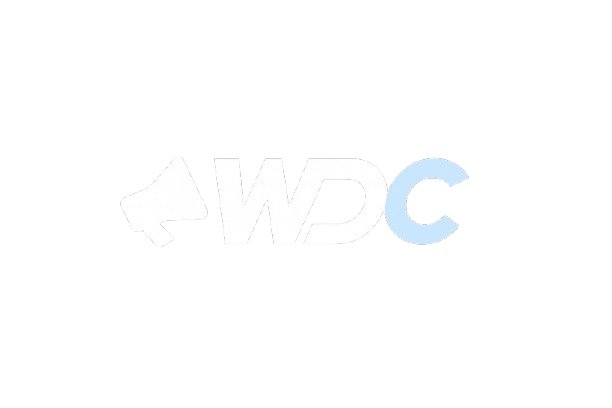The year 2026 is shaping up to be a turning point for marketing agencies worldwide. With Google’s latest Vertex AI update, the gap between data science and marketing strategy is narrowing faster than ever. Vertex AI, Google Cloud’s unified AI platform, is already known for helping businesses build, train, and deploy machine learning models at scale. But this latest update goes further — embedding advanced predictive analytics, generative AI, and real-time decision-making directly into marketing workflows.
For agencies, this isn’t just a technical enhancement; it’s a strategic advantage. WDC explores how the Vertex AI update will reshape campaign planning, targeting, and execution, and why early adopters will lead the 2026 marketing race.
What is Google Vertex AI?
Vertex AI is Google Cloud’s platform that allows organizations to:
- Train and deploy machine learning models quickly.
- Integrate AI into existing business applications.
- Access powerful pre-trained models for tasks like natural language processing, image recognition, and recommendations.
The 2026 update brings seamless integration between Vertex AI and Google’s marketing tools (Google Ads, Analytics, BigQuery) and incorporates more automated, insight-driven campaign recommendations.
This means agencies will be able to:
- Build custom AI models for client-specific goals.
- Use real-time audience prediction without manual data engineering.
- Deploy AI solutions faster than ever before.
Why This Update Matters to Marketing Agencies
Marketing agencies thrive on understanding audiences and delivering high-ROI campaigns. Traditionally, this required a mix of:
- Historical data analysis.
- Manual A/B testing.
- Human intuition.
With the Vertex AI update, agencies can automate the data science side while still keeping creative control. The result? Faster decision-making, reduced costs, and better targeting accuracy.
Key Impacts of the Vertex AI Update on Agencies
1. Hyper-Personalized Marketing
Vertex AI’s upgraded recommendation engine can analyze customer behavior across multiple channels in real-time. Agencies can now:
- Personalize ad creatives down to individual customer preferences.
- Deliver dynamic offers based on live engagement.
- Adjust messages based on predictive purchase behavior.
Example:
Instead of running a generic shoe ad to all sports enthusiasts, Vertex AI could show basketball sneakers to one segment and running shoes to another — all automatically.
2. Smarter Audience Segmentation
The update improves lookalike audience generation and propensity modeling, making it easier to:
- Identify high-converting audiences.
- Predict which leads are most likely to buy.
- Allocate budgets to the most profitable segments.
For agencies, this means less wasted ad spend and more efficient campaigns.
3. Real-Time Campaign Optimization
With deep integrations into Google Ads and Analytics, Vertex AI can:
- Pause underperforming ads instantly.
- Shift budget allocations automatically.
- Test new creatives without lengthy approval cycles.
This enables continuous optimization instead of waiting for weekly or monthly reviews.
4. Advanced Predictive Analytics
Vertex AI now supports:
- Sales forecasting at product and campaign levels.
- Churn prediction for subscription businesses.
- ROI projections before campaigns even launch.
Agencies can present clients with data-backed performance guarantees, increasing trust and retention.
5. Generative AI for Content Creation
The new generative AI features in Vertex AI can:
- Draft ad copy based on proven engagement formulas.
- Suggest SEO-friendly headlines.
- Generate social media variations optimized for platform-specific trends.
This doesn’t replace human creativity but speeds up the brainstorming process.
Challenges Agencies Should Watch For
While the Vertex AI update offers huge potential, agencies must navigate:
- Learning Curve: Teams will need AI literacy training to fully leverage the platform.
- Data Privacy & Compliance: Personalization at scale means stricter adherence to data protection laws like GDPR.
- Avoiding Over-Automation: Relying too heavily on AI may dilute brand storytelling if human oversight is reduced.
At WDC, we advise agencies to blend AI precision with human creativity for the best results.
How WDC Suggests Agencies Prepare
- Upskill Teams in AI Tools
Provide training on Vertex AI, data interpretation, and AI-assisted marketing strategies. - Audit Data Infrastructure
Ensure campaign data is clean, organized, and compliant with privacy laws. - Adopt an AI-Human Workflow
Use AI for analytics and predictions, but keep humans in control of brand voice and strategy. - Pilot AI-Driven Campaigns
Start small by testing AI-driven audience targeting or budget allocation for a single client before scaling.
Case Example: The Agency of 2026
Imagine a mid-sized marketing agency working with an eCommerce fashion brand.
With Vertex AI’s update:
- The system predicts which styles will trend next month.
- It automatically shifts ad spend to promote these products.
- AI-generated ad creatives are tested in real-time.
- The agency sees a 20% increase in conversion rates and a 15% drop in cost-per-acquisition in just two weeks.
This is the kind of competitive advantage Vertex AI can deliver.
The Future Outlook
By 2026, AI-assisted marketing will no longer be a novelty — it will be the industry standard. Agencies that fail to adapt to tools like Vertex AI risk falling behind as competitors deliver faster, smarter, and more profitable campaigns.
At WDC, we believe the key to thriving in this AI-driven era is strategic integration: letting AI handle the data-heavy lifting while humans focus on creativity, empathy, and brand authenticity.
Conclusion
Google’s Vertex AI update in 2026 represents a major leap forward in marketing technology. For agencies, it offers unprecedented access to real-time insights, predictive targeting, and generative creativity. Those who embrace it early will enjoy more efficient campaigns, stronger client relationships, and measurable ROI improvements.
As the marketing world evolves, WDC stands ready to help agencies integrate Vertex AI into their workflows — ensuring they stay ahead of the curve in this new era of AI-powered marketing.
FAQs
1. What is Google Vertex AI?
Vertex AI is Google Cloud’s unified AI platform for building, deploying, and scaling machine learning models — now enhanced for direct marketing applications.
2. How will the 2026 Vertex AI update affect marketing agencies?
It will enable hyper-personalized targeting, predictive budgeting, real-time optimization, and AI-assisted content creation.
3. Will AI replace marketers after this update?
No — it will handle data-heavy tasks, allowing marketers to focus more on creative and strategic work.
4. What skills should agencies develop to use Vertex AI effectively?
AI literacy, data analysis, privacy compliance, and agile campaign management.
5. How can WDC assist in this transition?
WDC provides AI integration consulting, training, and campaign automation solutions tailored for marketing agencies.

